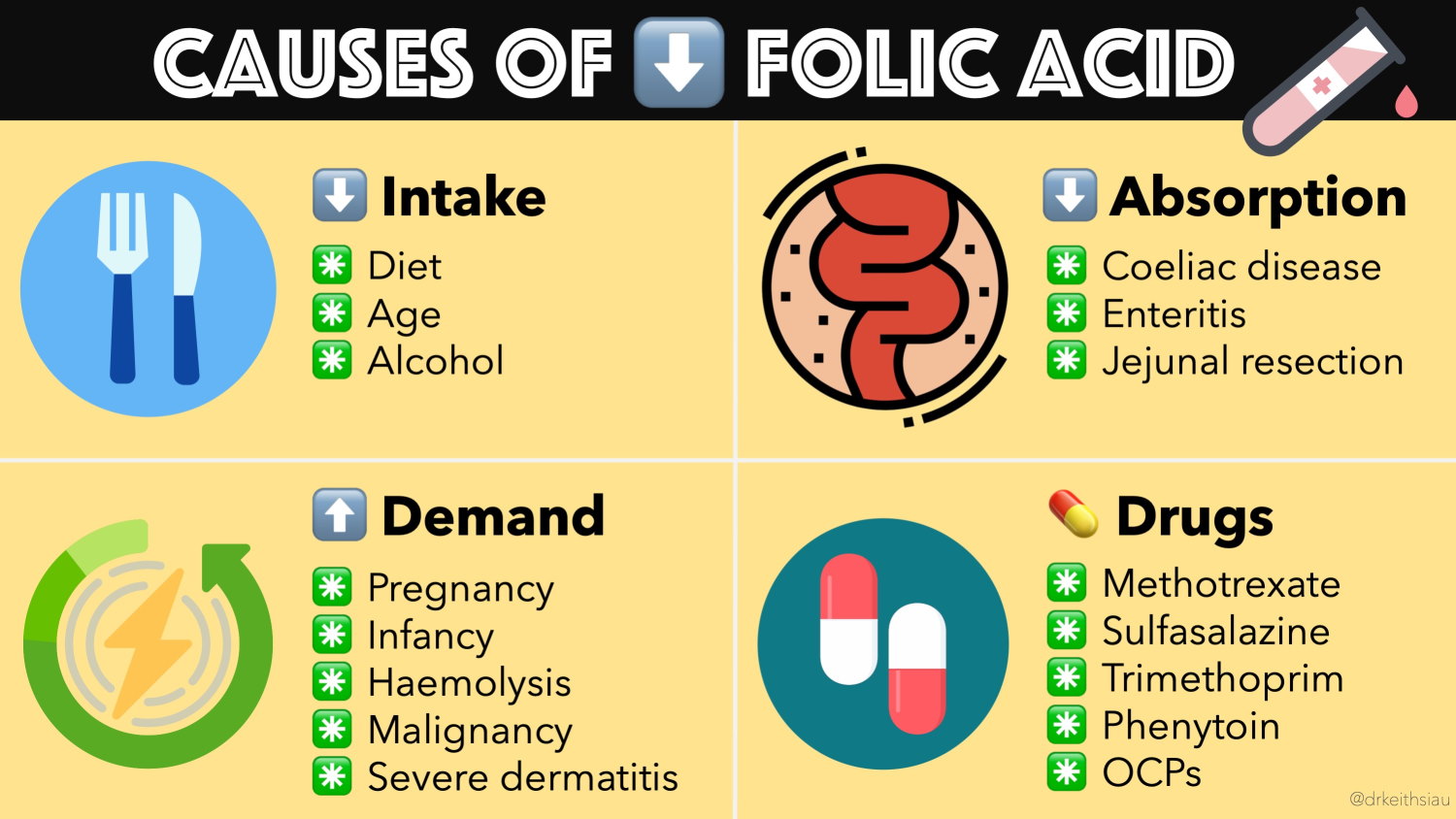Folate And Celiac Disease: Managing Nutrient Deficiencies

Folate and Celiac Disease: Managing Nutrient Deficiencies
Introduction
Celiac disease is an autoimmune disorder that affects the small intestine. When people with celiac disease eat gluten, a protein found in wheat, rye, and barley, their immune system attacks the lining of their small intestine. This damage can lead to a variety of symptoms, including abdominal pain, diarrhea, weight loss, and fatigue.
Folate is a B vitamin that is essential for the production of red blood cells and DNA. It is also important for the development of the nervous system. People with celiac disease are at risk for folate deficiency because the damage to their small intestine can interfere with the absorption of this vitamin.
Symptoms of Folate Deficiency
The symptoms of folate deficiency can vary depending on the severity of the deficiency. Mild folate deficiency may cause:
- Fatigue
- Weakness
- Headache
- Irritability
- Difficulty concentrating
More severe folate deficiency can lead to:
- Anemia
- Megaloblastic anemia (a type of anemia in which the red blood cells are larger than normal)
- Neural tube defects in newborns
Diagnosis of Folate Deficiency
Folate deficiency is diagnosed with a blood test. The test measures the level of folate in your blood. A folate level below 2 ng/mL is considered to be deficient.
Treatment of Folate Deficiency
Folate deficiency is treated with folate supplements. The dose of folate that you need will depend on the severity of your deficiency. Mild folate deficiency can be treated with over-the-counter supplements. More severe folate deficiency may require prescription supplements.
Managing Folate Deficiency in Celiac Disease
If you have celiac disease, it is important to follow a gluten-free diet to prevent damage to your small intestine. This will help you to absorb folate and other nutrients from your food. You may also need to take folate supplements to ensure that you are getting enough of this vitamin.
Other Nutrient Deficiencies in Celiac Disease
In addition to folate deficiency, people with celiac disease are also at risk for other nutrient deficiencies, including:
- Iron deficiency
- Vitamin B12 deficiency
- Calcium deficiency
- Vitamin D deficiency
These deficiencies can occur because the damage to the small intestine can interfere with the absorption of these nutrients. It is important to talk to your doctor about your risk for nutrient deficiencies and to get regular blood tests to check your nutrient levels.
Conclusion
Folate deficiency is a common problem in people with celiac disease. This deficiency can be caused by the damage to the small intestine that occurs when people with celiac disease eat gluten. Folate deficiency can lead to a variety of symptoms, including fatigue, weakness, and anemia. If you have celiac disease, it is important to follow a gluten-free diet and to take folate supplements to prevent folate deficiency.
Additional Information
What is the difference between folate and folic acid?
Folate is the natural form of vitamin B9. Folic acid is the synthetic form of vitamin B9 that is used in supplements and fortified foods. Folate is more easily absorbed by the body than folic acid.
What foods are good sources of folate?
Good sources of folate include:
- Leafy green vegetables (such as spinach, kale, and collard greens)
- Beans and lentils
- Citrus fruits
- Fortified cereals and breads
How much folate do I need?
The recommended daily intake of folate for adults is 400 mcg. Women who are pregnant or breastfeeding need more folate.
What are the risks of folate deficiency?
Folate deficiency can lead to a variety of health problems, including:
- Anemia
- Megaloblastic anemia
- Neural tube defects in newborns
- Heart disease
- Stroke
- Depression
How can I prevent folate deficiency?
You can prevent folate deficiency by eating a healthy diet that includes plenty of folate-rich foods. You may also need to take folate supplements if you have celiac disease or other conditions that interfere with the absorption of folate.
Folate and Celiac Disease: Managing Nutrient Deficiencies
Celiac disease is an autoimmune disorder that damages the small intestine when gluten is consumed. Gluten is a protein found in wheat, rye, and barley. When someone with celiac disease eats gluten, their immune system attacks the small intestine, causing inflammation and damage. This damage can lead to a number of nutrient deficiencies, including folate deficiency.
Folate is a B vitamin that is essential for cell growth and development. It is also necessary for the production of red blood cells. Folate deficiency can lead to a number of health problems, including anemia, fatigue, and birth defects.
People with celiac disease are at risk for folate deficiency because the damage to their small intestine can make it difficult to absorb folate from food. It is important for people with celiac disease to follow a gluten-free diet and to take a folate supplement to prevent folate deficiency.
5 Best Products for Folate and Celiac Disease
There are a number of different folate supplements available. The following are five of the best products for folate and celiac disease:

Nature Made Folate 200 mcg
Nature Made Folate 200 mcg is a high-potency folate supplement that is easy to take. It is also affordable and widely available.

Solgar Folate 400 mcg
Solgar Folate 400 mcg is a high-quality folate supplement that is made with hypoallergenic ingredients. It is also gluten-free and vegan.

Jarrow Formulas Folate 400 mcg
Jarrow Formulas Folate 400 mcg is a high-potency folate supplement that is made with Quatrefolic, a patented form of folate that is more easily absorbed than other forms of folate.

NOW Foods Folate 400 mcg
NOW Foods Folate 400 mcg is a high-quality folate supplement that is made with non-GMO ingredients. It is also gluten-free and vegan.

Life Extension Folate 400 mcg
Life Extension Folate 400 mcg is a high-potency folate supplement that is made with Quatrefolic, a patented form of folate that is more easily absorbed than other forms of folate. It is also gluten-free and vegan.
